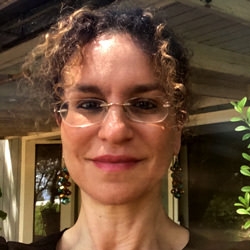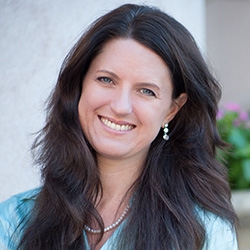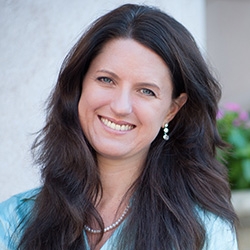
Search Results: shame
-
By guessing our child's feelings and needs we open the door to understanding what's behind their behavior, and can better suggest solutions that meet both their and our own needs. In this way we build trust and their desire to seek us out in times of need. Expressing our own feelings and needs also allows us to help them understand the value in fulfilling tasks or requests.
-
Join Aya Caspi, a Certified NVC Trainer, as she delves into the difficult topic of parenting, childhood trauma, and social status. She discusses the generational impact of being labeled by society as "less than" or subservient. The wounds of childhood trauma can be healed so they no longer are a means of control by a dominant culture.
-
Observation is the awareness of our sensory perceptions and thoughts, separate from evaluations and judgments. Feeling involves bodily sensations and emotions, distinct from "faux feelings" that mix thought and emotion. Needs encompass universal human requirements for survival and wellness, while thoughts and evaluations express needs. Requests are rooted in connection and invite true willingness, rather than demanding compliance.
-
-
- Understand the destructive dynamics that keep love from blossoming
- Learn how to deal with expectations, disappointments, and judgment
- Transform guilt, shame, and obligations into a flow of creativity
- Find out what tiny details are preventing natural love to flow!v
-
Listen to this telecourse recording with CNVC Certified Trainer, Alan Seid, to explore what is meant by social change in the context of NVC, and learn how Nonviolent Communication can be a powerful ally for creating social change.
-
What parts of yourself or others are hard to embrace, understand or even notice? What parts do others have difficulty embracing, understanding or noticing? Why do we condemn, loathe, hate, deny, judge, blame or feel shame around certain needs, feelings and parts of self and/or others? This article talks about the hidden parts of ourselves and others that shapes views and behaviours.
-
When we're on the receiving end of pain-stimulating assumptions, a microaggression, or prejudice --when we're reactive and resultingly have self-doubt, guilt or shame in ourselves-- is it possible to be intensely authentic while holding care for everyone in the situation? Can we effectively do this even as a third party witnesses to these things? Self-empathy, empathy, and a commitment to authenticity have become essential tools I need to keep sharpened in my toolbox if I am to show up and do the work I value in this world.
-
Most reactivity in intimate relationships comes from a lack of confidence in maintaining intimacy, autonomy, or security. What may help is naming what's happening, interrupting shame, and anchoring or reassuring yourself. You can also reflect on the effects of acting from reactivity. Knowing what helps center you, ask your partner to do or say specific things that might help. Read on for more.
-
An addiction to something (eg. opioids, fats, sugars, salts, cigarettes, coffee, alcohol, etc.) or a compulsion (eg. gambling, shopping, working, sex or love addictions) is often an unconscious attempt to soothe trauma - fear, loneliness and shame that's frozen in unconscious memory. The addiction or compulsion is a substitute for what we really need. It is an endless craving that's never enough. Read on for more.
-
In the "obnoxious stage" we care for our needs in a way that doesn't respect others' needs. In the "emotional liberation" stage we fully care for others' needs as much as our own—while being free of fear, guilt, shame, or obligation. Often NVC training teaches us how to achieve the latter stage without the former. For greater compassion we can be more rigorous in how we talk about “responsibility", impacts and interdependence.
-
When we have privilege, we can have access to resources resulting from legal or social norms related to membership in a group -- independent of any (in)action, awareness of the disparity, the potential benefits to us, or the costs to others. Unhelpful ways of engaging with privilege are: denial/invisibility, guilt/shame, defensiveness, and entitlement. Helpful ways of engaging are: owning privilege, learning about privilege, opening to feedback, and stewarding privilege for benefit of all. To be helpful we need to engage with necessary (rather than unnecessary) discomfort.
-
The purpose of boundaries is to prevent harm to yourself and others. You decide what you are available for and what you are not. Boundaries are a clear expression of limits that keep your heart open no matter what.
-
Yvette Erasmus shares practices to help us develop a regulated nervous system. We all get hijacked and triggered at some point. When that happens we can travel a blame and shame road or we can greet ourselves with graciousness and self compassion.
-
Here are seven self inquiry questions. Half of them can help you assess your NVC consciousness. The other half can help you move from pain, fear, resistance, judgement, criticism, and shame – to love, compassion, understanding, appreciation, curiosity, and more.

















